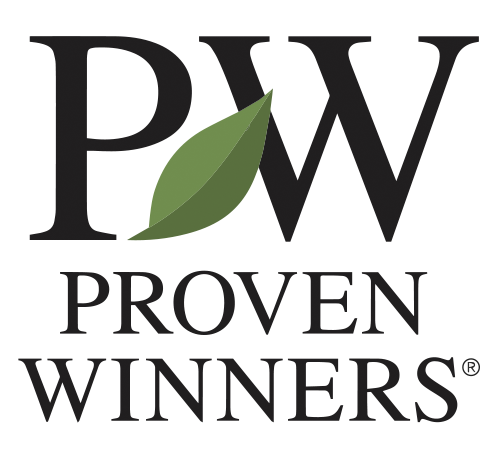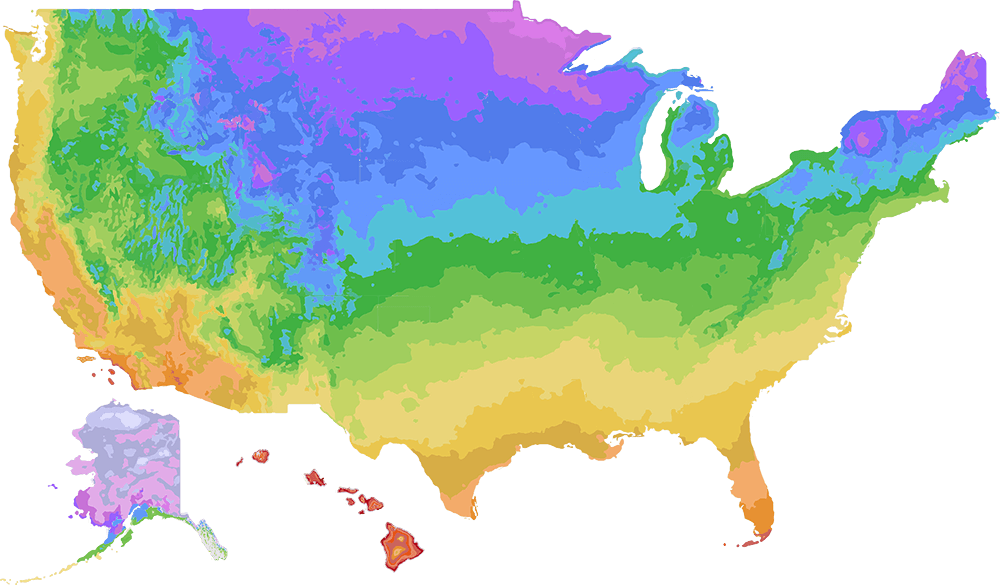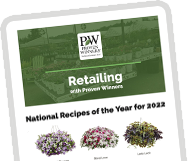Plants and Patents
A plant patent states that the genetics of your plant, or hybrid, are unique and can be protected under US law for 20 years. All plants accepted as Proven Winners must be patentable in the United States; Proven Winners can manage the patent process for the breeder. Usually a plant patent is applied for after the plant has been proven to be a step forward in genetics, few people or companies will patent a plant until it has shown itself to be of value. For Proven Winners, this means after the trialing period is over and a plant has met our high standards. Patent costs are usually paid back through the royalty stream the crop generates, so the breeder has no out of pocket expenses. Separate patents may be needed for Canada, Europe, and Japan if the plant will be marketed outside the US.
How does Proven Winners get patentable plants?
There are many types of plant breeding and selection that generate patentable new crops. These may come from a hobbyist gardener working in their back yard or an established corporate plant breeding program, but may also be generated by a random chance discovery, spontaneous changes in plant appearance (sometimes called sports”), and chemical, x-ray, or gamma ray mutation. Anything that is arguably different from other plants of the same genus and species is patentable. In some cases that may take some time to prove, so plan on the extra time to make sure you have a valid patent.
Why does Proven Winners patent all their plants?
Proven Winners patents all their plants and sets up exclusive arrangements for their promotion and sale with the breeder because it means higher rewards to the breeder, quality control of production, the best retail marketing in the business, and most importantly control of propagation so that the plant cannot be stolen or propagated illegally. By patenting and exclusive rights Proven Winners can provide our breeders with the best protection, and the highest return.
What is a Trademark and how does it differ from a patent?
Trademarking has to do with marketing a given plant under a "trade name" and unlike a patent it offers no direct protection for new varieties, but assists in marketing efforts. Plants released as Proven Winners are trademarked by Proven Winners while the patent always remains in the breeder's name. Trade names should not be confused with patent names and should never be the same or the patent is at risk. Trade names are designed to drive sales and establish a protectable name for a given plant.
What makes a plant unpatentable?
There are many ways in which a plant can be un-patentable, and it is often a complicated matter. Here are some ways in which your plant may not be patentable, although even if your plant cannot be patented there are alternatives that may still generate some income.
-
If your plant is an unimproved species, not a hybrid
Generally patent laws do not allow you to patent plants that are identical to existing species in the wild. If you are unsure of how to proceed, contact Proven Winners for a free consultation.
-
If your plant is not sufficiently different than another given hybrid
This is something that you need to be able to prove otherwise the course becomes much more difficult. Proven Winners can help with this by comparing your hybrids to industry standards as part of their trialing process.
-
If your plant has already been given away or sold publicly in the US more than a year ago
Sadly, according to US patent laws, plants that have been in the industry for more than a year become un-patentable. This is also true for plants used in public settings, display gardens, or any other public or published forum.
-
If your plant has been available or for sale in another country for more than a year
The same general rules apply to plants publicly available in other countries. Contact Proven Winners if you have a question regarding a plant that has been sold in another country, we are your best bet for finding out the truth about your plant or to help you through the patenting process.
For more information about plant patenting criteria, contact our experts.





 Sign up for our grower and retailer emails!
Sign up for our grower and retailer emails!
